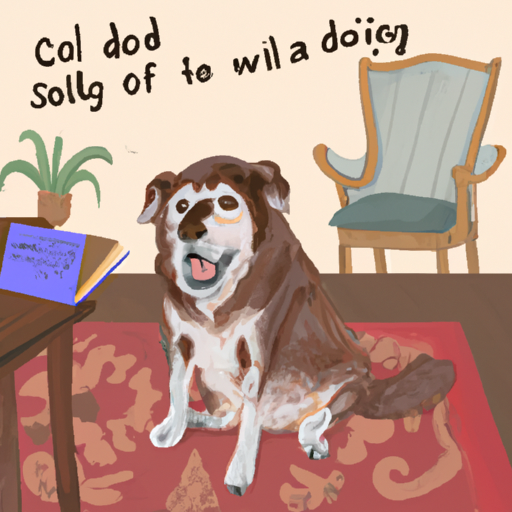Understanding the Basics
You’ve spent years looking after your furry friend, watching them grow from a playful pup into a mature, wise companion. Now, as they enter their senior years, you’ve started to notice something: they’re shaking. It’s subtle, maybe just a shiver here and there, but it’s enough to make you worry. Is it just a sign of age, or could it be something more serious?
Potential Causes of Shaking in Older Dogs
There are several reasons why your old dog might be shaking. Let’s delve into some of the most common causes:
- Cold: Just like older humans, older dogs can feel the cold more intensely. Their bodies struggle to maintain a constant temperature, leading to shivering.
- Anxiety or Fear: Dogs are sensitive creatures. Aging can exacerbate their anxieties, making them more prone to shaking.
- Pain or Discomfort: Your dog might be shaking because they’re in pain. Arthritis is common in older dogs and can lead to noticeable shaking.
- Disease: Certain diseases like kidney disease, neurological disorders, or even canine distemper can cause shaking in dogs.
How to Respond to Your Dog’s Shaking
When you see your dog shaking, what should you do? Here’s a quick guide:
- Observe: Pay close attention to when and where the shaking occurs. Is it constant, or does it occur only under certain conditions?
- Comfort: If your dog seems anxious or scared, provide comfort. This could be a gentle pet, a soothing voice, or their favorite toy.
- Consult a Vet: If the shaking persists, it’s time to visit the vet. They can perform tests to determine whether there’s an underlying medical condition causing the shaking.
Common Treatments for Shaking in Older Dogs
Depending on the cause of the shaking, your vet might recommend various treatments. Here are a few possibilities:
| Cause | Potential Treatment |
|---|---|
| Cold | Heated dog bed, warm blankets |
| Anxiety or Fear | Behavior modification, medication |
| Pain or Discomfort | Pain medication, physical therapy |
| Disease | Specific treatment will vary based on the disease |
FAQ
Q: Can diet affect my older dog’s shaking?
Yes. A healthy diet can improve your dog’s overall health, potentially reducing shaking.
Q: Is shaking a sign of disease in older dogs?
It can be, but it’s not always the case. If your dog’s shaking is accompanied by other symptoms like weight loss, changes in appetite, or lethargy, consult your vet.
Q: How can I comfort my shaking dog?
Offer a warm blanket, provide a quiet space, or use calming pet products. Your presence and reassurance can also help soothe your dog.
Q: Should I be worried if my old dog shakes occasionally?
Occasional shaking isn’t usually a cause for concern. However, if the shaking is frequent, severe, or accompanied by other symptoms, it’s best to consult with a vet.



